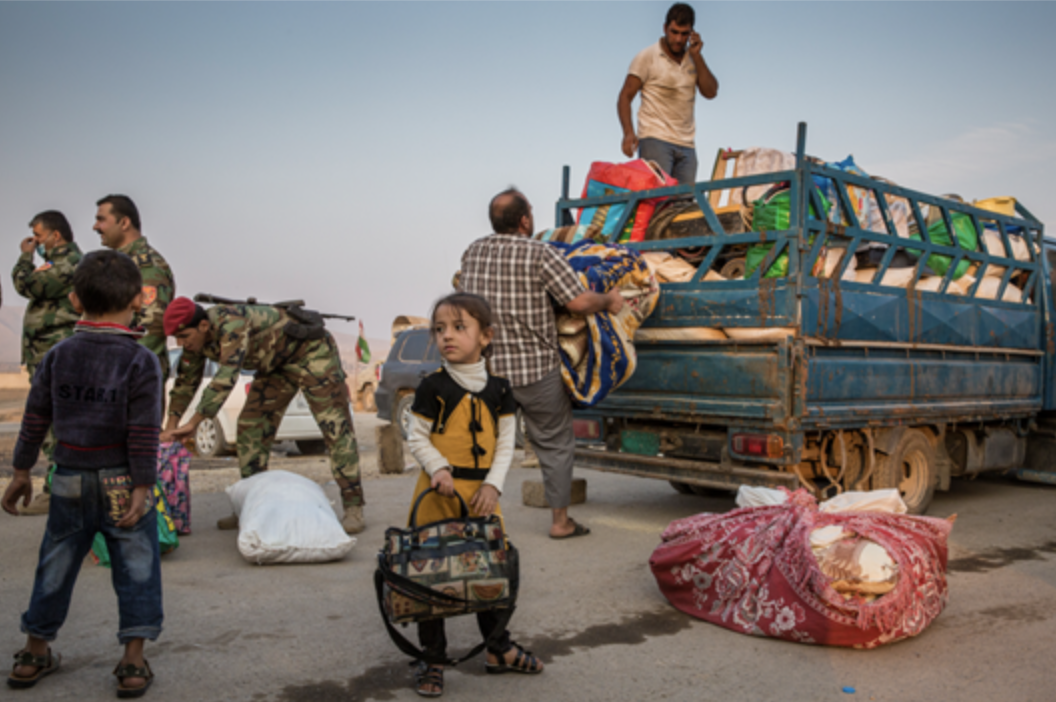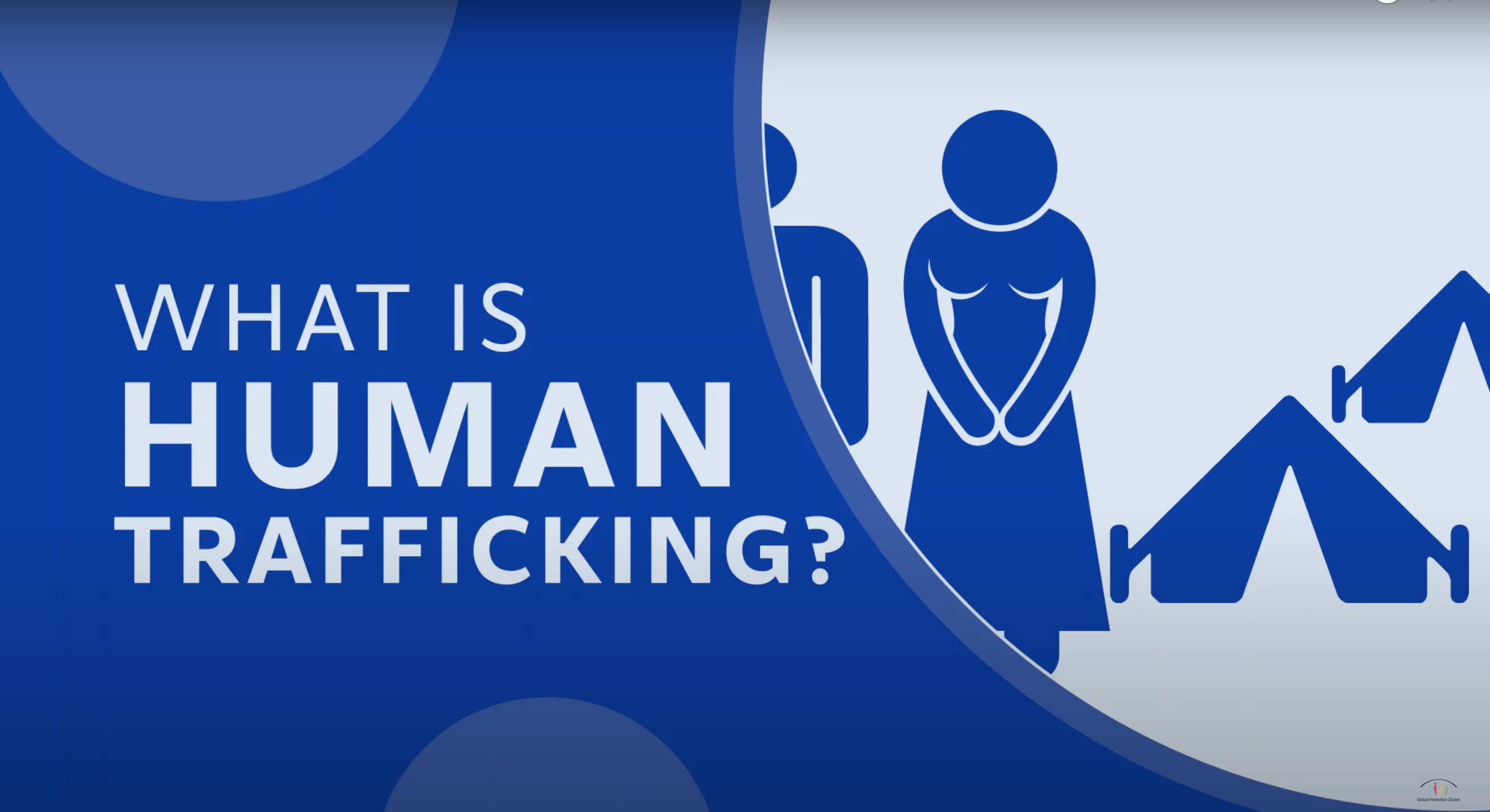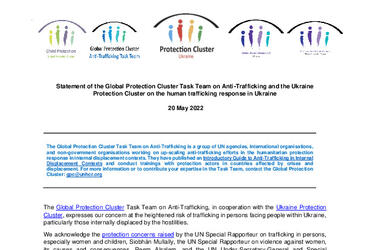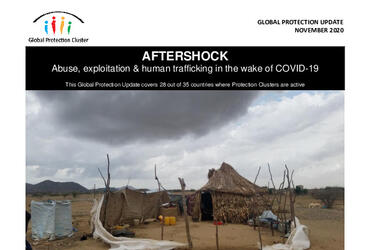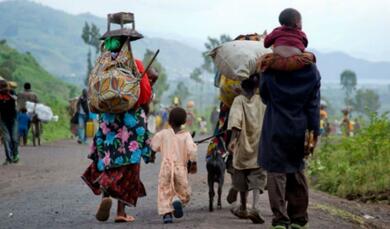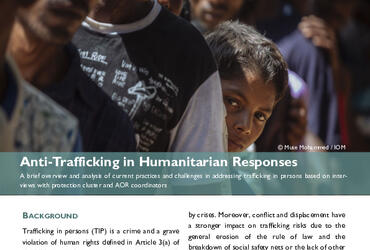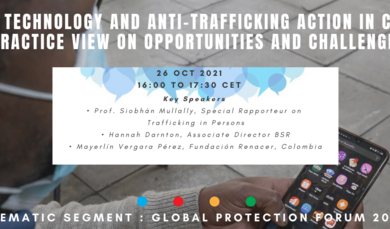In crisis contexts, traffickers capitalize on the widespread human, material, social and economic distress caused by the emergency. A number of factors make people more vulnerable to trafficking, including the hampered ability of families and communities to provide for their basic needs; limited options to seek domestic or international protection safely and regularly; negative coping mechanisms adopted by those affected by the crisis; erosion of the rule of law; and the breakdown of social safety nets and other social protection systems.
Women, men, girls and boys, are vulnerable to different forms of trafficking.
The Approach
Trafficking is a complex crime that currently does not have a clear, at-scale, predictable response in the humanitarian system.
The Global Protection Cluster is working to ensure that people delivering protection, including partners and governments, are:
-
Aware of the trafficking phenomenon and raise awareness among colleagues on the ground;
-
Understand the vulnerabilities that can put people at risk of becoming victims of trafficking;
-
Understand how to prevent people from being trafficked and protect and assist people who are trafficked.
National Protection Clusters take a primary role in coordinating the response to trafficking, much in the same manner that it coordinates responses to other rights violations. There is no standard practice for coordinating anti-trafficking interventions; but they can include coordination during protection cluster meetings, or through the establishment of an anti-trafficking working group reporting to the protection cluster coordinator.
When the identified trends and cases of trafficking in persons are disproportionately affecting women and/or children – therefore requiring stronger responses by GBV and/or child protection actors – coordination might take place under the relevant areas of responsibility (AoRs). Regardless of the forum in which coordination takes place, the response needs to be closely coordinated with the GBV and CP AoRs to ensure that victims of trafficking are referred to relevant response services (case management and specialized response services) and included in referral pathways and standard operating procedures. The protection cluster coordinator should work with the relevant AoR coordinators and partners to identify the most appropriate coordination structure for the context. The priority is to ensure that trafficking in persons is included in protection assessments, relevant humanitarian strategies and the humanitarian programming cycle, and that victims of trafficking receive timely and effective assistance.
The Task Team on Anti-Trafficking
The GPC established the Task Team on Anti-Trafficking in Humanitarian Action in mid-2017 as a time-bound entity to take stock of existing anti-trafficking work done through the clusters; to gather good practices; and to develop guidance on addressing trafficking in humanitarian responses in IDP settings. The Task Team is co-led by the International Organization for Migration (IOM) and UNHCR, the UN Refugee Agency. Task Team members include InterAction, the International Catholic Migration Commission (ICMC), the International Federation of Red Cross and Red Crescent (IFRC), the Global Initiative against Transnational Organized Crime, Norwegian Church Aid, Save the Children, Caritas, the United Nations Office on Drugs and Crime (UNODC), UN Women, the office of the UN Special Rapporteur on Trafficking in Persons, and the Child Protection and Gender-Based Violence Areas of Responsibility (AoRs). Membership is open to interested agencies and organisations.
The Task Team’s objective is to inform the GPC position on anti-trafficking interventions in humanitarian responses (in non-refugee settings) and to provide recommendations on how best to integrate them systematically in existing cluster mechanisms.
Anti-Trafficking Task Team
Zahra Atbi
Anti-Trafficking Task Team Co-leadIOM
Mail: [email protected]
Liliana Sorrentino
Anti-Trafficking Task Team Co-leadUNHCR
Mail: [email protected]

